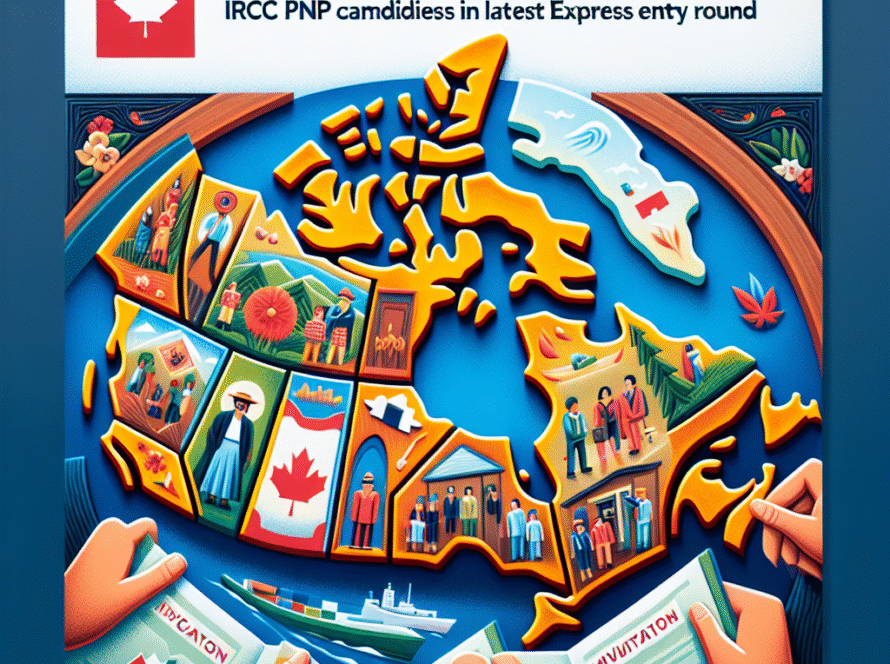Canada Introduces Three New Job Categories for Express Entry 2026

Canada’s Potential New Express Entry Categories: A Strategic Move for Economic Growth
The Canadian federal government is exploring the introduction of new Express Entry categories aimed at streamlining the immigration process for foreign professionals in high-demand sectors. This initiative, proposed by Immigration, Refugees, and Citizenship Canada (IRCC), includes senior managers, scientists, researchers, and military personnel, with a projected implementation date of 2026. As the public consultation period remains open until September 3, 2025, this development could significantly reshape Canada’s immigration landscape.
Key Proposed Categories
-
Senior Managers: The government aims to attract highly skilled leaders who manage organizational operations and guide teams. The rationale behind this initiative is that these individuals could inject fresh perspectives into Canadian businesses, drive digital transformation, and enhance overall productivity. By prioritizing senior management roles, Canada hopes to bolster its competitiveness on the global stage.
-
Researchers and Scientists: A focus on selecting certain researchers and scientists is intended to foster innovation, which is crucial for economic growth. While specific fields have not yet been detailed, the emphasis on research aligns with Canada’s goal of becoming a leader in scientific advancements.
- Military Personnel: To support the Canadian Armed Forces, the IRCC is considering prioritizing skilled military recruits from allied nations. This move not only enhances national security but also strengthens international ties.
Addressing Labour Shortages
In addition to these new categories, the IRCC plans to maintain its focus on sectors facing long-term labour shortages, including healthcare, skilled trades, education, STEM, and agriculture. This targeted approach aims to address pressing workforce gaps and ensure that Canada remains equipped to meet its economic needs.
The Role of Francophone Immigration
The government is committed to promoting Francophone immigration outside Quebec, with targets set for the percentage of French-speaking permanent residents. This aligns with Canada’s broader objective of fostering diversity and inclusiveness, which is essential in a multicultural society.
Impact on International Students
Changes in Express Entry categories may also affect international students. The IRCC has indicated that adjustments to field of study eligibility for Post-Graduation Work Permits (PGWP) could occur in conjunction with these new categories. Currently, 119 fields of study qualify for the PGWP, while 178 have been removed; this dynamic could shift again based on evolving immigration policies.
Understanding Category-Based Selection
Introduced in 2023, category-based selection allows the IRCC to draw candidates with specific in-demand skills or qualifications that match Canada’s labour market needs. This system is responsive and revised annually, ensuring that it adapts to changing economic conditions. The recent categories introduced in 2025 reflect this adaptability, focusing on French proficiency, healthcare, trades, and education.
Conclusion: A Forward-Thinking Approach
The proposed changes to Canada’s Express Entry system signify a forward-thinking approach to immigration, one that seeks not only to fill immediate labour shortages but also to attract leadership and innovation. As public consultations continue, the government is poised to consider feedback from various stakeholders, ensuring that the final decisions reflect the diverse needs of the Canadian economy. For potential immigrants, particularly those in targeted professions, this could mean new opportunities for establishing their lives in Canada.
As Canada moves closer to implementing these changes, stakeholders and prospective immigrants alike should remain engaged and informed about the evolving landscape of immigration policy. This initiative reflects Canada’s commitment to attracting top talent and fostering a vibrant, competitive economy in a rapidly changing world.



